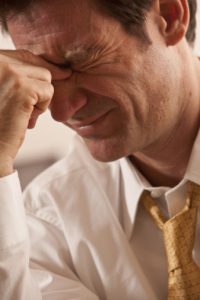Covid-19 related Anxiety and Depression
Covid-19 related anxiety and depression rates show a 29% increase from pre-pandemic times a year ago
Are you part of the 1 in 3 people experiencing anxiety and depression during this pandemic? Perhaps you feel irritated more than you used to, helpless in a situation where you have no control. Is anxiety and depression affecting your sleep and eating patterns? Have you become disorientated with days blurring into one another? Maybe you have become hypervigilant and afraid of everything outside your safe zone: escalating covid-19 related anxiety and depression.
If you are exhausted but can’t sleep; if you are feeling sluggish and demotivated then you are one in three people experiencing covid-19 related anxiety and depression you’re your experience is matched by a significant number of others. An August 2020 report in PLOS ONE indicates that the prevalence of suffering from any of the measured mental disorders was 50.6%. The Kaiser Family Foundation reported in August 2020 that anxiety and depression increased from 11 percent a year ago to 40 percent in June! From the time of lockdown in March, pandemic related anxiety and depression rose from 32 percent to 53 percent three months later.
Covid-19 related Anxiety and Depression Stamps on the Purpose of Life
At the age of 37 Jesse a para-legal, married with 3 young children, was thrilled at the idea that he was allowed to work from home when the lockdown started. He was full of vim and vigor ready to tackle all the home repairs and gardening chores that had been neglected for some time. A huge sense of pride and achievement spread over him like a soft warm blanket. Setting his own schedule, and eating lunch with his kids were bonuses.
But after two weeks Jesse was bored. There was nothing to get up for; he felt pressured to be available for his kids who were learning remotely from home; and annoyed with his wife who did her job remotely using up all the bandwidth on the internet. Depression set in. Jesse buried himself in games on his smartphone. His anxiety about life ever returning to normal ate at him, so he smoked more weed and ate more junk food. Covid-19 related anxiety and depression had put its claws into him and wasn’t letting up.
Covid-19 related Anxiety and Depression Squeezes Joy Out of Planned Activities
Jesse felt robbed when the planned two- week vacation with family members from across the country was cancelled due to the pandemic. He refused to go on weekend camping trips because they no longer included friends and fellow campers that traditionally met on these occasions. He was angry that he couldn’t eat at his favorite restaurant, saying that take-out wasn’t the same. Jesse felt deprived of his mid-week breakfast where he feasted on the pastries and hash browns that he took care not to eat the rest of the week. Getting a curbside pickup of the same order eliminated the joy of sitting in the restaurant and being with others having their fill. The absence of these routine but longed for experiences poisoned Jesse’s well, making covid-19 related anxiety and depression a certainty.
Even when Jesse and his family made a decision to go out of their way to a specialty ice-cream store, his fear of people who brushed him in line or who left their noses exposed when wearing a mask, he was unable to enjoy the moment. His covid-19 related anxiety and depression ratcheted up the paranoia, preventing him from going through with the ice-cream treat. Insecurity rattled him on all fronts.
Jesse’s Covid-19 related anxiety and depression increased as the pandemic moved into 5th month – matching the results reported in a University of Boston survey(Reuters Health 2020) – where Moderate depression increased to 14.8% from 5.7%; moderately severe depression to 7.9% from 2.1%; and severe depression to 5.1% from 0.7% – all statistically significant changes.
Covid-19 related Anxiety and Depression Heightens Family Tensions
Jesse’s covid-19 related anxiety and depression included suffering frequent panic attacks, especially when tense family relationships triggered memories of being mocked, dismissed and ignored in his childhood. He was unable to breathe properly. His hands shook and his legs wobbled – all familiar signs of panic brought on by an expectation of being judged or expected to perform in ways that made him feel like a vessel for use by others with no regard for him as a person with feelings or needs.
Along with the increased panic attacks, Jesse’s sleep was disrupted without the structure of his usual work routine. He could take naps during the day to numb out of the oppressive family atmosphere, and couldn’t sleep at night. Emotional intimacy between Jesse and his wife was not good before the pandemic; but now it felt threadbare.
A month into lockdown he smoked more weed to steady his panic and help him sleep. The Kaiser Family Foundation Tracking Poll in August 2020 found that “Many adults are also reporting specific negative impacts on their mental health and wellbeing, such as difficulty sleeping (36%) or eating (32%), increases in alcohol consumption or substance use (12%), and worsening chronic conditions (12%), due to worry and stress over the coronavirus.” Jesse’s experience is therefore typical of so many others with covid-19 related anxiety and depression.
But it didn’t lessen his worries about family life being calmer and more nurturing. He worried about his kids missing their social life and becoming anxious in adulthood, like him. He worried that he might not want to return to the office when it was opened up again. He worried about his colleagues who might be less prudent with regard to safety and contaminate the building – making everyone more exposed.
The Journal Translational Psychiatry, reported in August 2020, that close to half of the 3000 participants in their survey were worried about family members contracting the virus, one third were worried about unknowingly infecting others, and 20% were worried about contracting the virus themselves. Once again, Jesse’s fears and worries are part of the syndrome of covid-19 related anxiety and depression.
 Covid-19 related Anxiety and Depression Delays Rituals that Facilitates Moving on With Life
Covid-19 related Anxiety and Depression Delays Rituals that Facilitates Moving on With Life
In order to cope with the covid-19 related anxiety and depression, Jesse was checked out most of the time – using weed, playing games on his phone, sitting out in the yard and staring into space. He couldn’t pick up a book and enjoy that. Listening to his favorite music just made him feel worse because it brought into sharp relief how abnormal life was.
He couldn’t meet his children’s new teachers, visit their new classrooms or mark the new school year the way he would have liked. The highly anticipated rituals that marked the start of the new seasons of baseball was no longer possible. The ritual of celebrating his nephew’s 10th birthday was gone; as was the ritual Labor Day barbecue, movie going and beach parties.
The ritual that he wanted most of all was to get together with extended family and in-laws and be present for his eldest niece’s high school graduation. His parents hadn’t been around for his graduation. He knew what it felt like to graduate high school with no family member present. It was hollow. Those feelings came back to haunt him- as if he was using his niece’s graduation as a way of having his, albeit vicariously. The zoom meeting that was put together to honor the teenager didn’t appeal and felt like a bummer. Not being able to have this ‘do-over’ for himself, sent him even deeper into a covid-19 related anxiety and depression, overlaid with grief.
Coming out of a covid-19 related anxiety and depression
Parental History of Trauma and Resilience during COVID-19, a paper in Research Squares, 2020 points to the link between a person’s exposure to Adverse Childhood Experiences (ACE’s) and their later parenting stress. A body of research shows that the more ACE’s you had growing up, the more stressed you would be as a parent and the harder it would be to cope with natural disasters such as Covid-19. Having a history of abuse; being brought up in a home where alcohol and substance abuse was the norm; and witnessing conflict between parents are all ACE’s. Jesse was high on the ACE scale. His high ACE score meant that he had not developed the social and emotional competence he needed to develop resilience.
He himself had used alcohol and was now using weed. He had no model for good parenting and was struggling to find a path where he could take care of himself and his kids. With a heavy dose of Covid-19 related anxiety and depression it was hard for him to find the resilience needed to survive and thrive.
The journal Psychiatry Res. Sep 2020 indicates that despite the link between Adverse Childhood Experiences and Trauma resilience, some steps in that direction could be taken. The authors suggest exposure to sunlight for part of the day; physical exercise and staying connected with friends and family if they are part of a supportive network. Jesse could easily do the first two; but he’d find it hard to stay socially connected when he feels so minimized by family members and his immediate boss at work.
He struggled to nurture immediate family connections when he didn’t feel valued. That’s where individual therapy comes in. Jesse needs someone to nurture him without anyone else’s needs getting in the way. He needs some therapy to deal with family of origin trauma; and some parenting counseling. Mostly he needs individual therapy to fill him up with a good sense of self so he doesn’t give up trying to connect with family by using weed, food or digital games. Feeling valued will reduce his panic attacks and help him get through the covid-19 related anxiety and depression.
Copyright, Jeanette Raymond, Ph.D. 2020
You may also like:
Marriage Conflict Escalates with the Threat of Corona Virus
Stress Eating, Being Overweight and Depression
Spouses with Depression have a History of Childhood Trauma
arriage Conflict Escalates with Threat of Corona Virus



